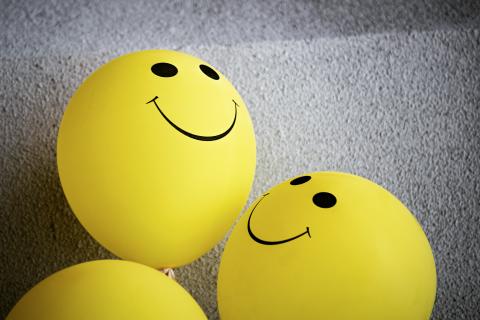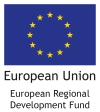And we are back!
Thursday, August 6, 2020 - 18:01
Holidays were great, but we are certainly happy to be back at the office, and also to let you know that most of our 5th call projects have been already contracted!
Though some are already visible on our project database, for others it will still take couple of weeks, until then, here is a brief overview of what they are about.
Stemmed from the previous Central Baltic project Springboard, NBS creates and strengthens regional collaboration by creating a globally competitive knowledge-intensive hub for new jobs and businesses.
The Teaming UP project promotes confidence and business skills boosting in youngsters who are interested in business and who possess entrepreneurial skills and business thinking.
ChangeMakers aims at nurturing a sustainable entrepreneurial mindset by way of involving students under 18 in order to enable the development of cross-border start-up simulations based on environment-based challenges.
SENsationalSTEM helps activating students with special educational needs (SEN-students) through STEM (science, technology, engineering and mathematics) based entrepreneurship.
BE the future seeks to strengthen girls’ entrepreneurial mindset and business capacity by exposing them to inspirational female leaders and to provide them with the opportunity to network.
GirlPower will target girls aged 15-18 year, who are enrolled in secondary education institutions as they often face the older generation stereotype according to which a woman should rather focus on getting married and giving birth to children than on making a career or running her own company.
Marine ecosystems are a huge richness. To preserve it and to ensure climate and seawater quality, taking advantage of ecosystems have to be regulated.
The project MAREA will develop an accounting system for the marine environments to better regulate its use. It will also create a model of integrated sustainable governance to be used to preserve natural resources and marine spaces
The Central Baltic area has a big potential for attracting tourists to experience the local Rural Lifestyle. To tackle this opportunity, the Rural Lifestyle project will promote authentic lifestyle and sustainability tourism in the Central Baltic region.
B.Green aims at improving urban planning by developing a new green infrastructure (GI) planning concept into the pre-planning process of cities.
Nutrient-rich organic biomasses are needed to produce biogas, if the production is not managed in a sustainable way, the biogas production can be a significant source of nutrients for the environment and the Baltic Sea. The Sustainable biogas project will address these issues develop legislative, regulatory, economic and voluntary policy measures for nutrient management solutions.
INTROSERV aims to create a common maritime assistance service tool based on the experience of all Nordic countries and aimed at small boats. This service will provide primary technical assistance to amatorial boaters – small repairs on location, the possibility to tow in the nearest harbour, and information about available facilities for larger repairs.
The E263 (2) and E77(A2) are connecting roads to the Russian border and Pskov (RU) and both have 2+2 motorway sections with very high traffic density near Tallinn and Riga. The SMART E263/E77 project will use smart solutions to improve traffic management.
The project EPIG aims at supporting them to boost their skills in a flexible way. By developing a curriculum in collaboration with vocational schools.
The SuFi project activities involve testing, piloting and developing a survey about the competence needed in the financial sector and to provide future students with the opportunity to learn them.
The objective of the iSEE project is to innovate aligned professional, higher education in social entrepreneurship in Degree Programmes in the CB area.
Inteltrans is working on modernizing higher education (VET) curricula for transport and traffic management professionals by addressing emerging development needs and by creating a joint Intelligent Transport and Traffic Management study module.
Both in Estonia and in Finland, the situation of the visually impaired young people is highly polarized: while the majority of the young people with visual impairment are struggling there is a minority that is doing exceptionally well. With the help of this minority, the MOL project aims to find out what obstacles visually impaired young people are facing and to look for ways to overcoming these obstacles.
The aim of the FinLat-Logic project is to align parts of work-based learning (WBL) curricula of VET programs of logistics between Latvia and Finland.
Information about the remaining projects, will be available once they have been contracted. Stay tuned and welcome back!
Though some are already visible on our project database, for others it will still take couple of weeks, until then, here is a brief overview of what they are about.
Priority 1
Baltic Explorers is supporting companies in the game industry from Finland, Sweden, Estonia and Latvia to reach new markets in Asia and in the US.Stemmed from the previous Central Baltic project Springboard, NBS creates and strengthens regional collaboration by creating a globally competitive knowledge-intensive hub for new jobs and businesses.
The Teaming UP project promotes confidence and business skills boosting in youngsters who are interested in business and who possess entrepreneurial skills and business thinking.
ChangeMakers aims at nurturing a sustainable entrepreneurial mindset by way of involving students under 18 in order to enable the development of cross-border start-up simulations based on environment-based challenges.
SENsationalSTEM helps activating students with special educational needs (SEN-students) through STEM (science, technology, engineering and mathematics) based entrepreneurship.
BE the future seeks to strengthen girls’ entrepreneurial mindset and business capacity by exposing them to inspirational female leaders and to provide them with the opportunity to network.
GirlPower will target girls aged 15-18 year, who are enrolled in secondary education institutions as they often face the older generation stereotype according to which a woman should rather focus on getting married and giving birth to children than on making a career or running her own company.
Priority 2
Clean storm water will develop and test new storm water treatment solutions that will effectively clean storm water, ensure management quality and monitor water quality in near real time, thus enabling operative response in emergency cases.Marine ecosystems are a huge richness. To preserve it and to ensure climate and seawater quality, taking advantage of ecosystems have to be regulated.
The project MAREA will develop an accounting system for the marine environments to better regulate its use. It will also create a model of integrated sustainable governance to be used to preserve natural resources and marine spaces
The Central Baltic area has a big potential for attracting tourists to experience the local Rural Lifestyle. To tackle this opportunity, the Rural Lifestyle project will promote authentic lifestyle and sustainability tourism in the Central Baltic region.
B.Green aims at improving urban planning by developing a new green infrastructure (GI) planning concept into the pre-planning process of cities.
Nutrient-rich organic biomasses are needed to produce biogas, if the production is not managed in a sustainable way, the biogas production can be a significant source of nutrients for the environment and the Baltic Sea. The Sustainable biogas project will address these issues develop legislative, regulatory, economic and voluntary policy measures for nutrient management solutions.
Priority 3
ArcGate aims at attracting maritime tourists who don't have a boat or knowledge about the peculiar travel conditions that apply at sea each day. The project aims at increasing the service in service points" so tourists can use to find their destination without worrying about how to return home.INTROSERV aims to create a common maritime assistance service tool based on the experience of all Nordic countries and aimed at small boats. This service will provide primary technical assistance to amatorial boaters – small repairs on location, the possibility to tow in the nearest harbour, and information about available facilities for larger repairs.
The E263 (2) and E77(A2) are connecting roads to the Russian border and Pskov (RU) and both have 2+2 motorway sections with very high traffic density near Tallinn and Riga. The SMART E263/E77 project will use smart solutions to improve traffic management.
Priority 4
In the Central Baltic islands, the tourism season is short. To maximize their profit possibilities local business owners in the field of gastronomy and tourism need further training.The project EPIG aims at supporting them to boost their skills in a flexible way. By developing a curriculum in collaboration with vocational schools.
The SuFi project activities involve testing, piloting and developing a survey about the competence needed in the financial sector and to provide future students with the opportunity to learn them.
The objective of the iSEE project is to innovate aligned professional, higher education in social entrepreneurship in Degree Programmes in the CB area.
Inteltrans is working on modernizing higher education (VET) curricula for transport and traffic management professionals by addressing emerging development needs and by creating a joint Intelligent Transport and Traffic Management study module.
Both in Estonia and in Finland, the situation of the visually impaired young people is highly polarized: while the majority of the young people with visual impairment are struggling there is a minority that is doing exceptionally well. With the help of this minority, the MOL project aims to find out what obstacles visually impaired young people are facing and to look for ways to overcoming these obstacles.
The aim of the FinLat-Logic project is to align parts of work-based learning (WBL) curricula of VET programs of logistics between Latvia and Finland.
Information about the remaining projects, will be available once they have been contracted. Stay tuned and welcome back!



